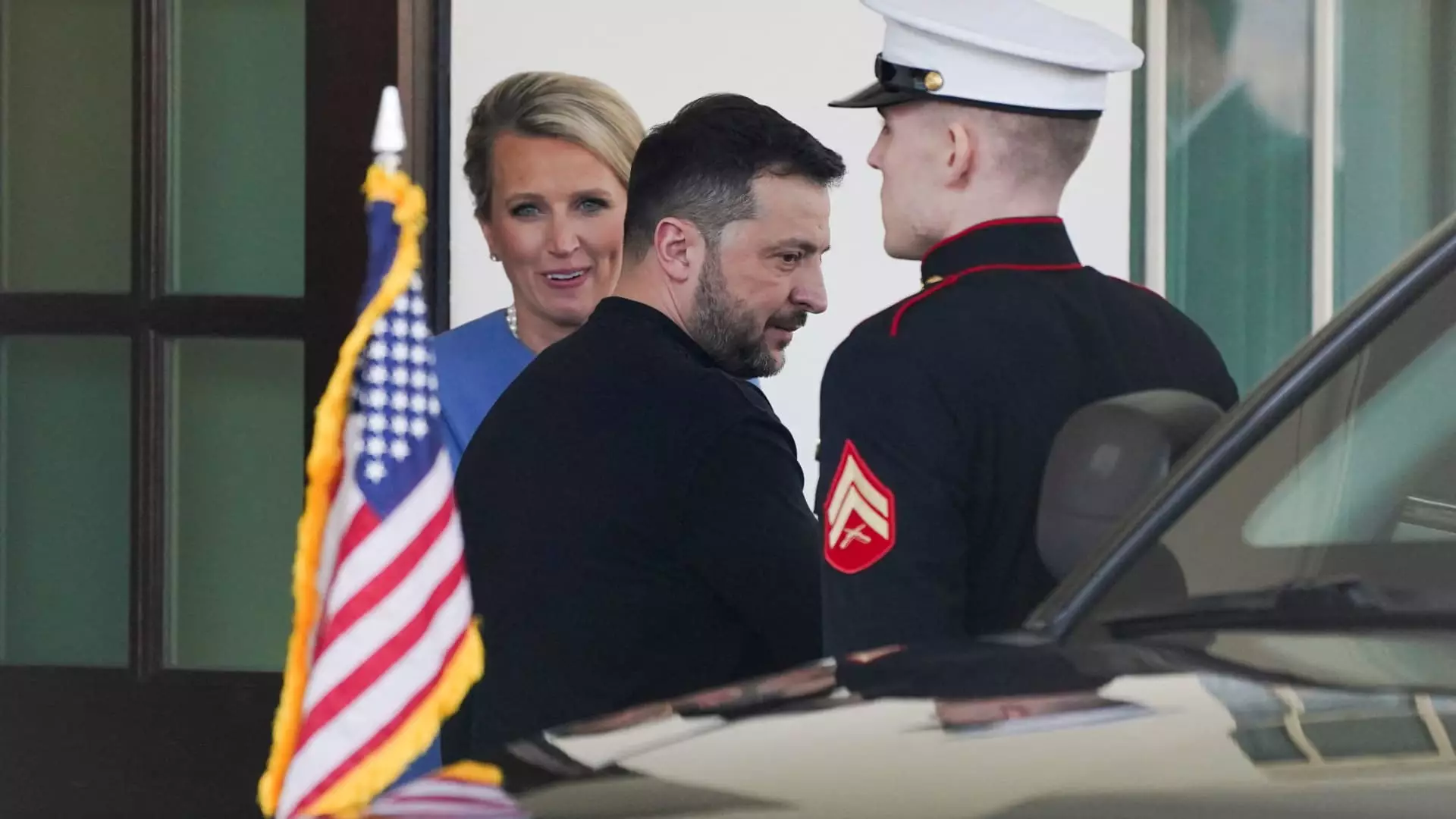In a moment that has significant implications for international relations and peace negotiations, Ukrainian President Volodymyr Zelenskyy concluded his visit to the White House with an abrupt exit that underscored the complexities of the ongoing conflict between Ukraine and Russia. The meeting, which took place on a Friday afternoon, was characterized by a dramatic clash with President Donald Trump, leaving both parties seemingly at an impasse. This encounter not only highlighted the challenges inherent in high-level diplomacy but also raised questions regarding the efficacy of negotiations under strained circumstances.
Zelenskyy arrived in Washington, D.C., with hopes of discussing a potential deal that would grant the United States access to Ukraine’s valuable rare earth minerals. This initiative was positioned as a strategic maneuver to bolster American economic interests while simultaneously providing Ukraine with a vital ally in its ongoing struggle against Russian aggression. However, following an intense and heated exchange between the two leaders, the discussions fell apart, leading to the cancellation of a joint press conference that was set to follow the meeting.
As Zelenskyy left the White House, he was met with a barrage of questions from reporters eager for insight into the status of peace negotiations. Yet, he maintained a resolute silence, neither confirming nor denying the apparent failures of the discussions. This silence speaks volumes; it underscores the uncertainties that continue to loom over Ukraine’s future amid its protracted conflict with Russia, which began with the latter’s invasion and subsequent annexation of Crimea.
While Trump maintained that a deal could still be on the table, he placed the onus squarely on Ukraine’s shoulders, suggesting that Zelenskyy must be prepared for a “constructive conversation.” This language signals a complicated dynamic where the expectations of both leaders do not align. Importantly, Trump’s remarks on social media after the debacle revealed a sharp disappointment in Zelenskyy’s approach, asserting that the Ukrainian leader was not adequately prepared to pursue peace negotiations while relying on American support.
In a post-meeting statement, Trump described the interaction as “meaningful,” despite its collapse. His emphasis on emotion rather than diplomatic protocol points to an unusual approach to foreign policy that involves personal sentiments influencing state-level decisions. Echoing this sentiment, Trump accused Zelenskyy of disrespect toward the United States in a setting he deemed sacred, further complicating the diplomatic relationship between the two nations.
Zelenskyy, for his part, took to Twitter after his exit to express gratitude toward the United States and its people for their support of Ukraine. His message emphasized the need for “just and lasting peace,” revealing an underlying commitment to continue working towards resolution despite the setback at the White House.
The ramifications of this meeting extend beyond the immediate fallout of a failed negotiation. It highlights the fragility of international relations, particularly when both sides enter discussions with differing priorities and tactics. For Ukraine, this encounter may signal a need to reassess its strategy in garnering American support, while for the Trump administration, it raises questions about the effectiveness of its diplomatic endeavors. A temporary setback could be detrimental, given the pressing nature of the conflict that has persisted for over three years.
As the situation evolves, both nations will likely need to recalibrate their strategies if they are to find common ground conducive to peace. The next steps in this diplomatic saga will not only shape Ukraine’s future but also redefine America’s role in international conflict resolution.
Zelenskyy’s visit to the White House illustrates the challenges of modern diplomacy, with emotional exchanges potentially eclipsing substantive progress. This encounter serves as a pivotal lesson on the complexities of negotiating peace in an era where political interests and personal dynamics intersect dramatically.

